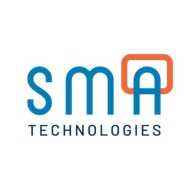

Rocket Zena and VisualCron are competing in the automation software market. VisualCron seems to have the upper hand due to its expansive functionality and customizable workflows, appealing to users needing robust automation, while Rocket Zena is favored for its integration capabilities and scalable solutions for larger corporations.
Features: Rocket Zena provides extensive integration with enterprise software, focusing on scalability, and advanced analytics for performance tracking. VisualCron offers customizable workflows, broad automation capabilities, and powerful script execution features, making it attractive to those needing comprehensive automation solutions.
Room for Improvement: Rocket Zena could improve its reporting features, user interface intuitiveness, and offer more training resources. VisualCron might focus on enhancing its pricing transparency, providing a wider array of integration options, and expanding its support documentation.
Ease of Deployment and Customer Service: Rocket Zena is known for its straightforward deployment process and consistent customer service. In contrast, VisualCron offers a versatile deployment model suitable for varied IT environments, supported by dedicated and responsive service, which could be an advantage for adaptive needs.
Pricing and ROI: Rocket Zena offers flexible tiered plans with competitive pricing, leading to potential ROI through enhanced productivity. VisualCron's pricing reflects its extensive feature set but focuses on delivering long-term ROI through streamlined operations and significant efficiency returns.
| Product | Market Share (%) |
|---|---|
| VisualCron | 1.2% |
| Rocket Zena | 2.5% |
| Other | 96.3% |


| Company Size | Count |
|---|---|
| Small Business | 3 |
| Large Enterprise | 6 |
| Company Size | Count |
|---|---|
| Small Business | 5 |
| Midsize Enterprise | 1 |
| Large Enterprise | 5 |
Rocket Zena offers scheduling and dependency mapping, intuitive interface, and containerized deployment. It simplifies workflow automation, enhancing efficiency across platforms.
Rocket Zena's strengths lie in its scheduling capabilities, graphical interface, and efficient deployment. It supports users in task management with cross-platform scheduling, streamlining repetitive tasks through automation. The web-based client facilitates process visualization and workflow management, while the notification system enhances task handling. Users can manage mainframe, Linux, and Windows environments while integrating with SAP and Oracle, ensuring comprehensive automation and efficient job execution.
What are the key features of Rocket Zena?In industries like finance and manufacturing, Rocket Zena plays a vital role in scheduling batch jobs and automating file transfers. It helps adapt task scheduling to business calendars and integrate with existing platforms, ensuring a smooth workflow that meets business objectives.
VisualCron offers task automation through a visual interface, eliminating the need for programming skills. With capabilities like alerting and variable usage, users benefit from integration with databases, timely task execution, and cross-platform operations.
VisualCron empowers users by simplifying complex workflows. It allows seamless task automation through features like interactive scheduling and role-based operations. Users appreciate its integration capabilities, replacing multiple tools with a comprehensive automation solution. The support system ensures quick assistance, making it a reliable choice for workflow visualization and task execution. However, areas like error handling and interface design require enhancements for improved user experience.
What are the key features of VisualCron?Organizations leverage VisualCron in industries like finance and logistics to automate tasks such as encryption and secure file transfers. It's also integral in managing data operations, facilitating communications between systems, and executing SQL jobs, enhancing operational efficiency across sectors.
We monitor all Workload Automation reviews to prevent fraudulent reviews and keep review quality high. We do not post reviews by company employees or direct competitors. We validate each review for authenticity via cross-reference with LinkedIn, and personal follow-up with the reviewer when necessary.